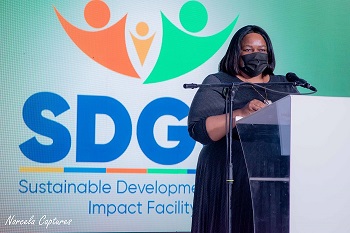
Reptile smuggling on the increase because of globalisation and the internet – expert

The Namibian Scientific Society will host a public talk by Kandali Iiyambo, titled ‘Reptile Smuggling in Namibia’ on 27 January at 19:00, at its premises in Robert Mugabe Avenue in Windhoek.
Iiyambo will focus on how the smuggling of wild animals, the fourth largest illegal trade in the world, is motivated by massive gains from the international trade in wild animals.
She will explain how globalisation and expanding markets in which the internet plays a significant role as an intermediary between offers and demands, is having a severe impact on threatened species. In Namibia, several types of reptiles are popular in the international trade in animals.
Iiyambo will further explain how a large number of reptiles trafficked yearly, are directed to the international pet markets, including the collectors who keep exotic animals in private zoos as status symbols and some special types even make it all the way to the world reptile shows.
Iiyambo said apart from the financial gains involved in such trades, there are real problems at hand like the massive suffering, species extinction, introduction of invasive species, loss of biodiversity, destruction of entire ecosystems and undermining the country’s effort to protect its natural resources. This is a result of the unjust and anthropocentric abuse of power by humans.
The talk will also highlight how Namibia is involved in the smuggling of reptile species across the globe, aided through the international airports in Namibia.
Iiyambo is a part-time lecturer at the University of Namibia in the department of biological sciences. She holds a MSc in Zoology with specific reference to Herpetology from the University of Pretoria and a BSc in Environmental Science from the University of Namibia.
She has a particular passion and a broad knowledge of reptile diversity in and around Namibia. She has gained experience as a researcher during her tenure at the Gobabeb Research and Training Centre.
Her interest extends from conservation biology, indigenous knowledge systems, to innovations and practices and she enjoys to link her zoological and environmental academic profession with cultural heritage to better understand how the colonial past and technology continue to influence local culture.













































